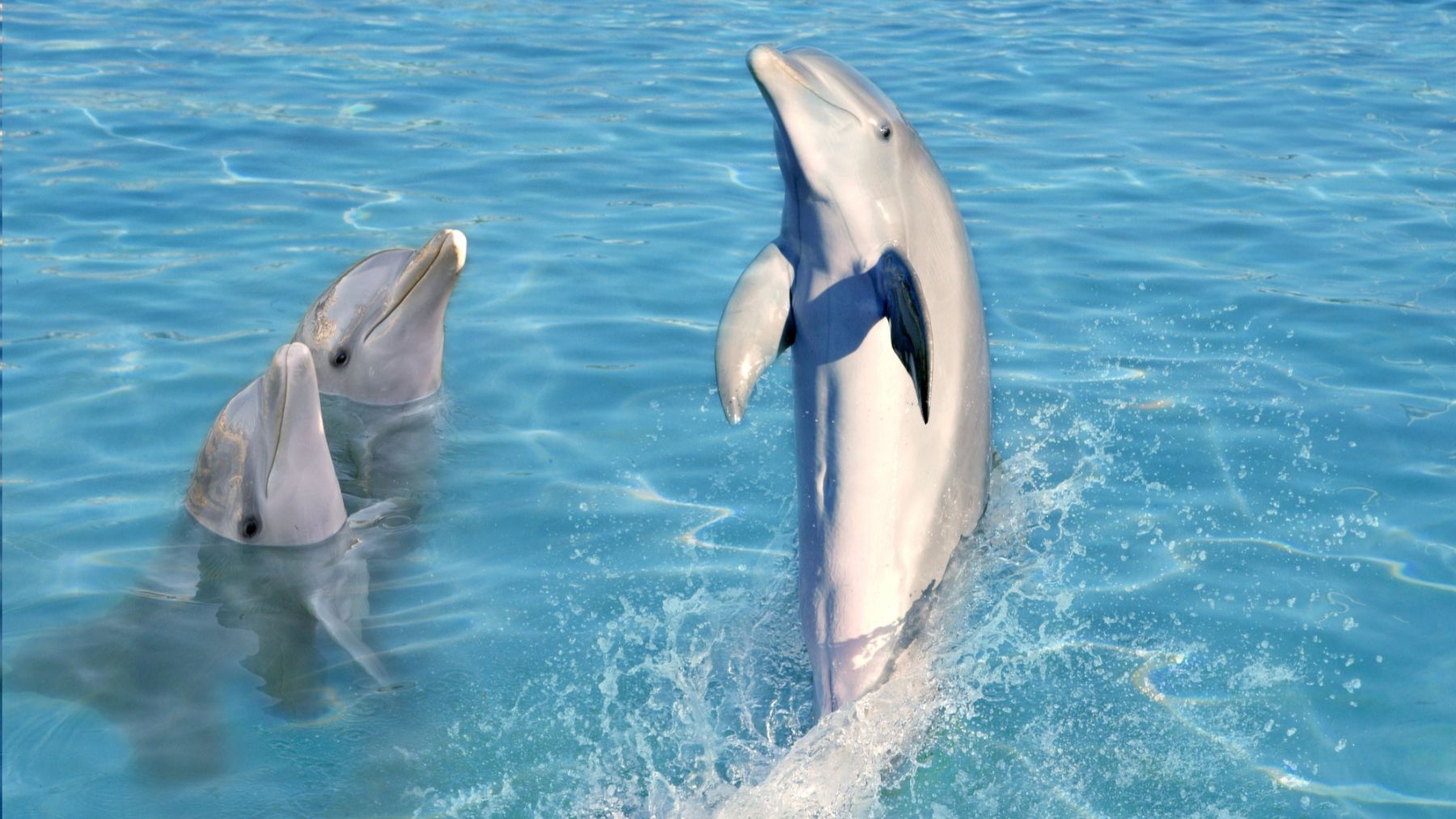The pollution What man leaves behind in the world has been demonstrated on several occasions, such as in the case of the damage caused in the Amazon region or the active fight against pollution plastic. However, there are also other types of actions that have a direct impact on the environment dolphins. They, like other animals, have had to adapt their way of life because of humans.
The oceans are full of species that coexist and have their own world apart from the terrestrial world. However, some of our actions have an impact on the daily lives of some groups.
In this specialized article you will discover what happens to these mammals and to what extent you can be guilty of what happens to them.


The origin of everything lies in the pollution acoustics. An experiment in a center Florida shows that noise affects these cetaceans, which rely on sounds to communicate, reproduce and search for food.
Why does noise pollution harm dolphins?
It must be taken into account that light is scarce in the ocean, forcing animals to resort to different sounds to know what is happening around them. Certain sounds help them orient themselves, reproduce, communicate with other members of their species and find food to survive.
In this context, the turmoil caused by human societies harms and even endangers them. How can they distinguish between what’s happening in the ocean and what’s happening outside of it? How much does it affect them? The creatures most affected by this cruel reality are cetaceans such as dolphins, whales and porpoises.
Far from being an evil that will come to an end, the pollution Acoustics will continue to increase as maritime traffic and other industrial activities near the oceans increase, such as offshore hydrocarbon extraction.
A team of scientists wanted to go one step further and determine how much sound changes the lives of these living creatures in the ocean.
Because it is difficult to measure something like this in a natural environment, they developed an experiment on the facilities of the Florida Dolphin Research Center (USA) to analyze how animals respond to different sound levels. The conclusion they drew was that these mammals were screaming to counteract the external noise.
Dolphins are fed up with pollution: this is how this group of cetaceans defends themselves
It turned out that as the animals were exposed to high sound levels, they nearly doubled the duration of their whistles and the volume to compensate for the interference.
The team has chosen Delta j Reese for the study, which, as the study’s co-author pointed out Abigail Haddock, his cousins and at the time of the experiment they were 10 and 7 years old respectively. Another aspect that emerged from the study was that the more noise there was, the more the animals looked at each other.
Previous research showed that this position could respond to the fact that their hearing is direction-sensitive, so that looking towards each other can reduce the annoying noise.
“Our results show that although the dolphins “They used compensation mechanisms to overcome the effects of noise, their success rate in completing this cooperative task decreased,” he told El Mundo. Pernille Sorensonthe researcher of the University of Bristol who led the study.
‘It is very likely that the dolphins in the wild are affected in the same way as dolphins of our research and that cooperative group tasks, such as cooperative foraging, can be influenced by this. If so, this could lead to a reduction in foraging efficiency, which could impact individual health and ultimately the health of the population,” he tells this newspaper.
Can dolphins get used to noise pollution?
“If they are exposed to the same type of noise over and over again, they may become accustomed to its presence. But even if they get used to it, it will still have a negative effect on their ability to use sound,” he explains.
This is just a small part of what the pollution acoustics in the oceans. In this article we will tell you more about the consequences this will have in the world, in addition to what happens to the world dolphins.

